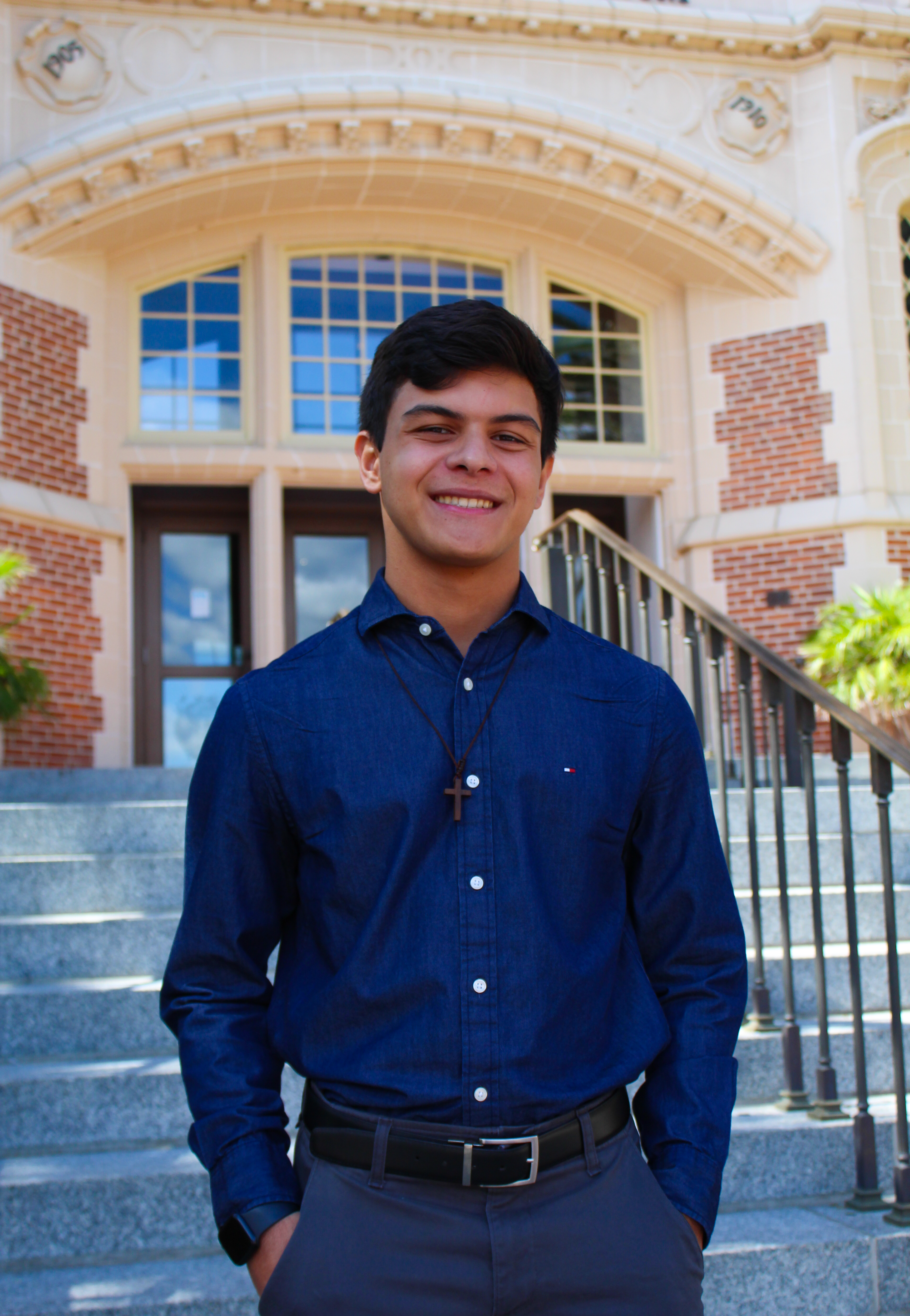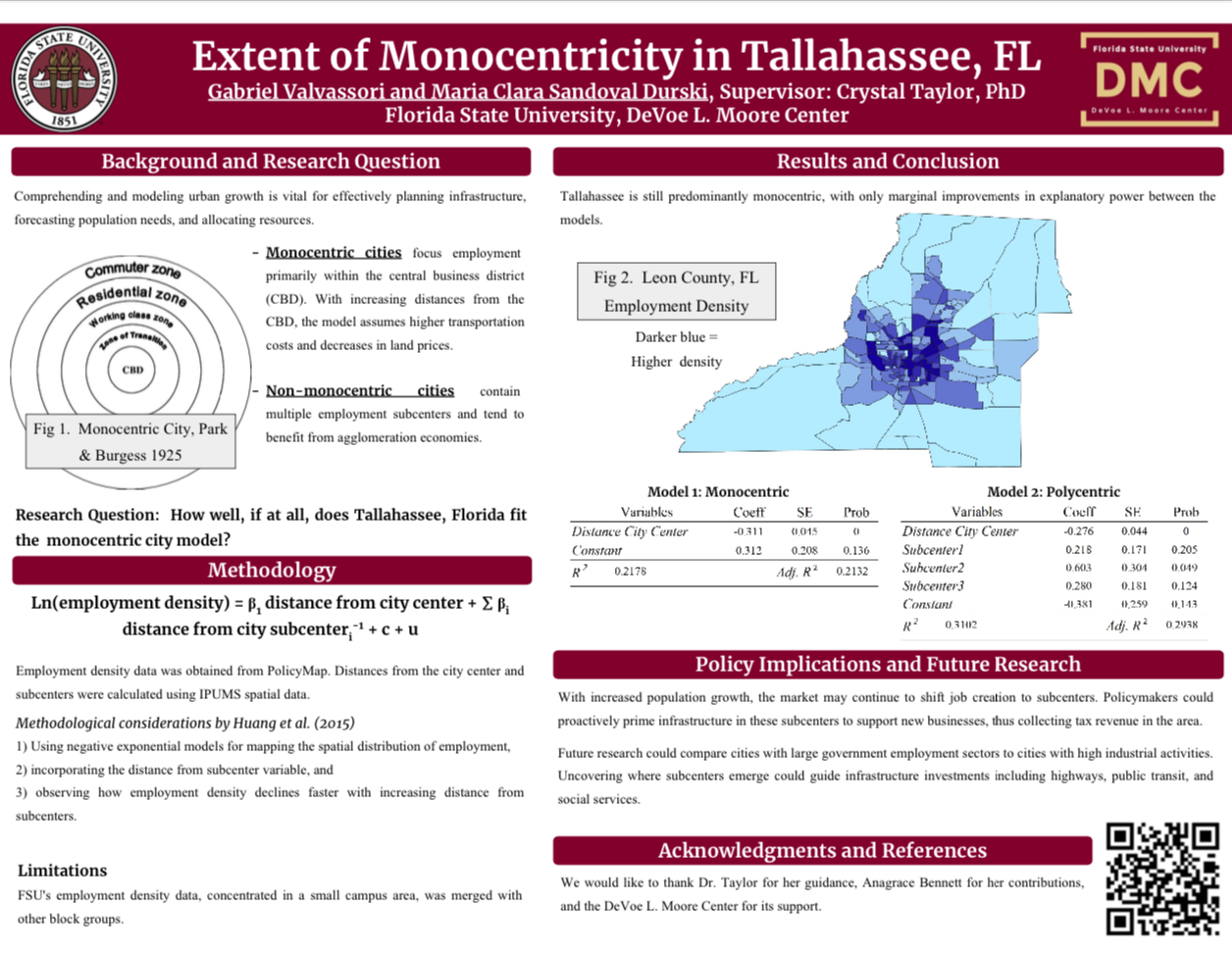Research Symposium
24th annual Undergraduate Research Symposium, April 3, 2024
Gabriel Valvassori De Jesus Silva Poster Session 2: 10:45 am - 11:45 am/374

BIO
I am an academic researcher at The DeVoe L. Moore Center, where I conduct and publish research with a focus on housing policy. I am also a student at Florida State University, pursuing two bachelor's degrees in economics and finance. I have earned multiple certifications in Microsoft Office, Excel, and QuickBooks, and my experience with Stata and Tableau demonstrates my proficiency in data analysis.
At The DeVoe L. Moore Center, I work with a team of researchers and professors to collect, analyze, and present research on various aspects of housing policy, such as affordability, regulation, and innovation. I use my Excel, Stata, and Tableau skills to create and manage databases, perform statistical tests, and generate reports and charts. I have contributed to several publications and presentations that inform and influence policymakers, stakeholders, and the public. I am passionate about applying my knowledge and skills to address real-world problems and create positive social impact. I value learning from diverse perspectives and experiences, and I seek to collaborate with others who share the same vision and goals.
Extent of Monocentrism In Tallahassee
Authors: Gabriel Valvassori De Jesus Silva, Crystal TaylorStudent Major: Economics and Finance
Mentor: Crystal Taylor
Mentor's Department: Economics Mentor's College: College of Social Sciences and Public Policy Co-Presenters: Maria Clara Sandoval Durski
Abstract
Understanding city growth and development is crucial for planning infrastructure expansion, predicting place-based population needs, and efficiently allocating resources. The monocentric model assumes concentrated employment in the Central Business District (CBD), rising transportation costs with increasing distance from the CBD, and decreasing land prices with increasing distance from the CBD. Non-monocentric cities typically reap more benefits from agglomeration economies than monocentric cities. The researchers ask the following research question: How well, if at all, does the city of Tallahassee, FL fit the standard monocentric model?
Using 2021 IPUMS maps and data from Policy Map, researchers conducted two regression analyses, one monocentric model and another non-monocentric model, inspired by researchers analyzing Beijing, China. The dependent variable for both models is employment density. The independent variables are distance from the city center in the monocentric model and distance from the city center and distance from the subcenter in the non-monocentric model, representing how non-monocentric models have different job concentration centers.
Preliminary results show that Tallahassee remains largely monocentric, with only marginal improvement in explanatory power between monocentric and non-monocentric models. Usually, cities begin as monocentric, becoming non-monocentric as they grow. However, Tallahassee is the capital of Florida, and a significant portion of employment is centered on government activities. The government's resistance to market forces may explain Tallahassee’s continued monocentrism, despite non-monocentrism being more effective with agglomeration economies boosting wages, efficiency, and reducing production costs due to lower transportation expenses.
Keywords: Monocentric, polycentric, Tallahassee, employment, planning


